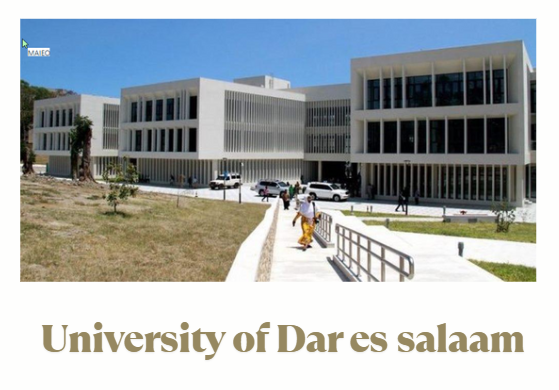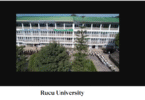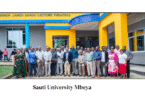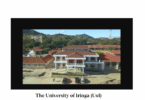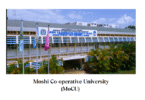The University of Dar es Salaam (UDSM) is the oldest and most prestigious university in Tanzania. Established in 1961, it began as an affiliate college of the University of London, later part of the University of East Africa, before becoming a fully independent university in 1970. UDSM’s main campus, Mlimani, sits on a beautiful hilltop outside the city centre, offering a vibrant learning environment with modern facilities.
Faculties, Colleges, and Courses
UDSM offers various academic programs across various colleges, schools, and institutes. Here’s a breakdown:
College of Humanities (CoHU)
This college focuses on arts, culture, and history.
Courses include:
- BA in History
- BA in Archaeology and Heritage Management
- BA in Literature, Philosophy, Language Studies, Theatre Arts, and Music
Postgraduate options: MA in History, Linguistics, Literature, and more.
College of Social Sciences (CoSS)
Ideal for students interested in human society, politics, and development.
Courses include:
- BA in Sociology
- BA in Economics
- BA in Political Science, Geography, Anthropology, Psychology
Postgraduate: MA in Gender Studies, Development Management, Sociology, etc.
College of Natural and Applied Sciences (CoNAS)
If you’re passionate about science, this is the place.
Courses include:
- BSc in Chemistry, Microbiology, Molecular Biology, Geology, Environmental Sciences, Wildlife Conservation
Postgraduate: MSc and PhD programs in various science disciplines.
College of Information and Communication Technologies (CoICT)
Tech enthusiasts can explore:
Courses:
- BSc in Computer Science
- BSc in Computer Engineering, Telecommunications, Business IT
Postgraduate: MSc in IT, Telecommunications, Health Informatics, etc.
College of Engineering and Technology (CoET)
UDSM is well-known for its engineering programs.
Courses:
- BSc in Civil, Mechanical, Electrical, Chemical, Mining, Petroleum, Industrial, and Textile Engineering
- Architecture and Quantity Surveying
Postgraduate: MSc and PhD in engineering fields.
UDSM Business School (UDBS)
For future business leaders and entrepreneurs.
Courses:
- BCom in Accounting, Finance, HR, Marketing, Procurement, Tourism
Postgraduate: MBA, MSc in International Trade, Finance, Entrepreneurship.
School of Law (UDSoL)
A top destination for aspiring legal professionals.
Courses:
- LLB (Bachelor of Laws)
- BA in Law Enforcement
Postgraduate: LLM in various legal areas, PhD in Law.
School of Education (SoED)
Focuses on teacher training and educational research.
Courses:
- B.Ed. in Adult Education, Early Childhood, Commerce, Physical Education
Postgraduate: MEd, MA in Education, PhD in Education.
School of Journalism and Mass Communication (SJMC)
Ideal for those seeking a career in media.
Courses:
- BA in Journalism
- BA in Mass Communication, Public Relations
Postgraduate: MA in Mass Communication.
Institute of Kiswahili Studies (IKS)
Dedicated to promoting the Kiswahili language and culture.
Courses:
- BA in Kiswahili, Kiswahili Linguistics
Postgraduate: MA, PhD in Kiswahili.
Institute of Development Studies (IDS)
Focuses on development theory and practice.
Courses:
- BA in Development Studies
Postgraduate: MA in Development Studies, Gender Studies.
Constituent Colleges: DUCE & MUCE
Specialising in teacher education.
Courses:
- BA/BSc with Education
- B.Ed Arts/Science
Postgraduate: MA/MSc with Education, Public Administration.
School of Health Sciences
Although still in its early stages of development, UDSM offers medical training at the Mbeya College of Health and Allied Sciences (MCHAS), with programs such as the Doctor of Medicine (MD).
Student Life at UDSM
UDSM hosts over 40,000 students, both undergraduate and postgraduate.
Facilities include libraries, sports grounds, student hostels (like the large Mabibo hostels), health centres, cafeterias, and even banking services on campus.
The university is known for its vibrant student organisations, clubs, and cultural events.
Why Choose UDSM
- Wide variety of academic programs across disciplines
- Strong reputation in East Africa and internationally
- Rich research culture with centres focusing on development, gender, environment, and Kiswahili
- Lively campus life in one of Africa’s most dynamic cities
